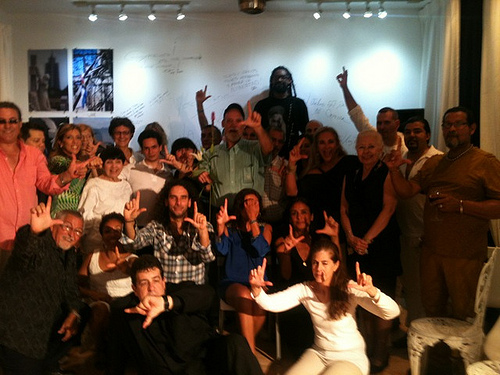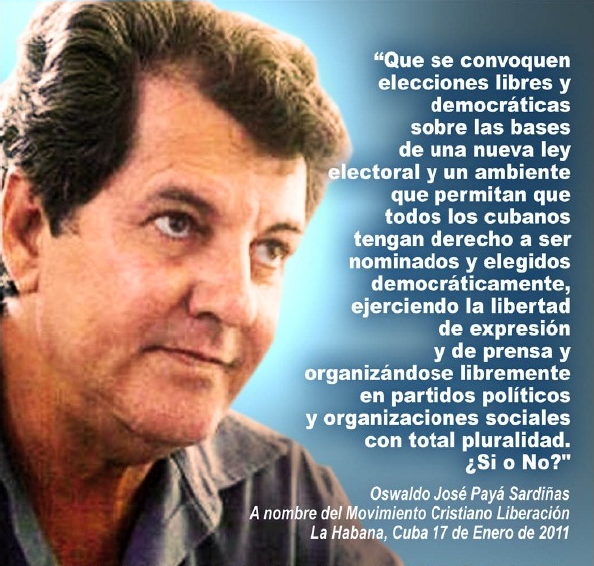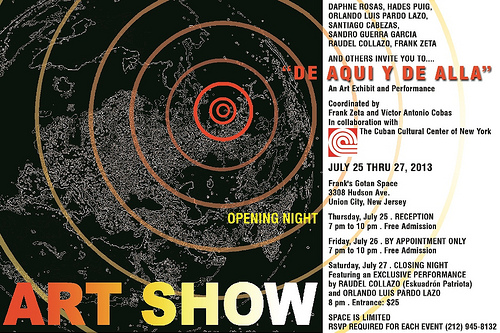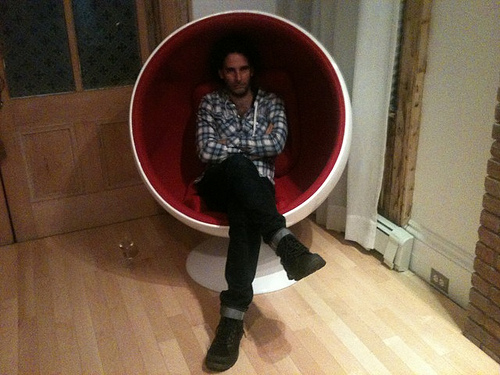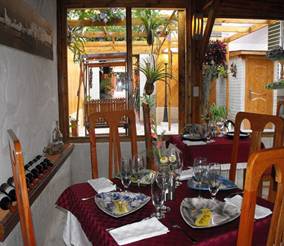28 July 2013
An Interview with Berta Soler, Leader of the Ladies in White / Ivan Garcia
 (Exclusive, Iván García in Havana)
(Exclusive, Iván García in Havana)
If you want confirmation that socialism does not work, do yourself a favor and visit Alamar. This community, twenty minutes east of Havana, is an example of real urban chaos. A place without rhyme or reason, ugly, poorly constructed buildings rise four, five, even eighteen stories high along poorly paved, winding roads.
I spent more than an hour trying to find building number 657 where Berta Soler lives. She is the leader of the brave women known as the Ladies in White, a group founded in April 2003 in response to the imprisonment of seventy-five peaceful activists opposed to the Cuban regime.
For the last 28 years, Berta has lived in Alamar, a bedroom-community created in 1970 to alleviate Havana’s housing shortage. Her convoluted neighborhood, with its run-down interior alleyways, is known as Siberia.
Soler shares a modest two-bedroom apartment with her two sons and husband, Ángel Moya, one of the twelve Black Spring dissidents who opted to continue his opposition work from inside the country. In her ivory-colored living room there is a photo of Pope Francis greeting Berta during a public audience at the Vatican.
When I arrive, she and her husband are washing a large batch of clothes. “We have to take advantage of the break in the rain,” Berta explains, looking at the items and throwing them into the washer. Before sitting down in a red vinyl sofa for an interview with Diario de las Américas, she prepares coffee in her tiny kitchen.
“I was born in Jovellanos, Matanzas province. I came to Havana when I was nineteen. I am a microbiological technician and worked in the América Arias maternity hospital. Before becoming a Lady-in-White, I belonged to a dissident group called the Leonor Pérez Mothers’ Committee.
“It was the beginning of the 2003 wave of repression. In the foyer of Villa Marista — the barracks of the political police — there was Blanca Reyes, the wife of poet Raúl Rivero, Claudia Márquez, Gisela Delgado, Miriam Leyva and Laura Pollán, among others. By order of Fidel Castro we had been separated from our husbands, fathers and sons. We decided to demand their release by carrying out a march every Sunday outside St. Rita’s Church in Miramar.
“From that moment Laura excelled at being the leader. She was my sister, my comrade-in-arms. Those were years of marches, verbal attacks and beatings by paramilitary mobs. On October 14, 2011, when she died under circumstances that I find suspicious, I felt as though a part of me had been ripped out. In one week the regime planned Laura’s death. One day what really happened will come to light.
“In the beginning there were forty-eight Ladies in White. Most of us had never been dissidents. We were workers, technicians and housewives who were forced by Castro’s dictatorship to protest, demanding the release of our loved ones.
“In 2010 the repression against us intensified. Most of us are monitored by the regime’s special services. In front of what had been Laura’s residence in Central Havana, they still maintain an intelligence command post with cameras and listening devices. In an apartment across from mine they have installed a permanent operative.
“Every time we go out into the streets of any province to march — gladiolas in hand, demanding freedom for political prisoners still in detention and asking that human rights be respected — the state ’generously’ spends resources that it does not invest in the people on tracking and repressing us. There are always police patrol cars, two city buses (in spite of the shortages in the urban transport system), hundreds of agents with communication equipment and even an ambulance. I would like to know how much money is spent on repressing us.
“After Laura’s death it was decided that I should be the group’s spokeswoman. We don’t have many secrets except logistical details such as the hour, day and location of a march. Since November 2011 we have had a standing rule. Any woman may join the group.
“We keep growing. Currently we have 240 women working on seven fronts: Havana, Granma, Holguín, Santiago de Cuba, Guantánamo, Villa Clara and Matanzas. Soon we will add Ciego de Ávila. But, like I always say, we prefer quality to quantity,” notes the leader of the Ladies in White.
Berta Soler was a key player in a negotiation in April 2010 between the government of General Raúl Castro and Cuban cardinal Jaime Ortega Alamino.
“We have to thank the cardinal and the Catholic church for their role as mediator in the conflict which arose after the death of Orlando Zapata from a hunger strike. Those were difficult months. The repression was fierce. Jaime Ortega himself witnessed a savage attack and verbal assaults against the Ladies in White from the doorway of St. Rita’s Church.
“It was then that Ortega decided to write a letter to Raúl Castro to negotiate a release. The cardinal acted as go-between. The regime wanted us to expel the Ladies in Support.* We refused. We reminded General Castro that, when they were imprisoned after the assault on the Moncada Barracks, his mother sought support from people who were not relatives.”
They then gave in. It was historic. For the first time the military rulers allowed them to march along Fifth Avenue without being harassed by paramilitaries. Mediation by Ortega and Spanish chancellor Miguel Ángel Moratinos led to the release of all the prisoners arrested for their support of the seventy-five and most of the other political detainees.
“But these days the Catholic church and the cardinal remain silent, continues Berta.” Other dissidents and I have even been the subject of strong criticism in Espacio Laical, the clergy’s own publication. Right now, even as we speak, there is a Lady in White who has been held for over a year without trial.
“She is the only member of the group in prison. Her name is Sonia Garro. She and her husband, Ramón Alejandro Muñoz, were detained in March 2012 as though they were terrorists. The Ladies in White demanded their immediate release,” says Soler.
It started pouring down rain in Alamar. Berta went to the kitchen to prepare dinner. As she peeled sweet potatoes, she continued.
“One member of the group, Berta Guerrero — a resident of Holguín — went through an extensive interrogation in which she suffered physical torture in her hands and was held in a room whose temperature had been set very low. We learned that State Security asked her to collaborate with them in exchange for a new house. When she refused, they issued a blunt warning: ’We have been ordered to put an end to the Ladies in White by July 26.’
“None of this intimidates us. We will continue to grow stronger. Even if the regime frees those close to the fifty political prisoners who remain in jail, we will keep marching in support of democracy and human rights.
“And to clear up the legal gibberish looming over the twelve dissidents who decided to remain in their homeland, among them my husband. Technically they are not free men. The regime can overturn their cases and send them back to jail. None of them has been issued a passport so they can travel,” Berta points out.
The leader of the Ladies in White sees the value in dissidents’ recent overseas trips. “I believe they have been positive,” she say. “They have exposed the deplorable economic and social conditions and the lack of political freedom in our country. We have learned how civil society functions in democratic countries. When you return, you realize how much there is left to be done in every area, especially in community work.”
In response to the accusations by eighteen members of Ladies in White Laura Pollan Movement in the eastern provinces, Berta states, “On June 30 the Ladies in White issued a declaration. It was a painful decision. We can accept any opinion, whether it be from someone in exile or any other dissident in Cuba. And we respect that. But we believe the internal affairs of the group should be left to us to manage. In my opinion the evidence is not strong enough to accuse Lady-in-White Denia Fernández Rey of being an agent of Cuban special services. You cannot condemn a person on the basis of reasonable doubt.”
Berta Soler is a woman of character. Her group’s vociferous demands for freedom during their peaceful protest marches over the course of ten years cannot be ignored.
“We have made great personal sacrifices. These include family members dying from poor medical attention while we were marching. Children like my daughter who have not been accepted to universities due to our political positions. Years in jail from which our relatives never recovered. Sisters like Laura Pollan who are no longer with us. And other Ladies in White who had to go into exile. No, Iván, this struggle has cost too much. No one is going to divide us, especially not the divisions hardened by the Castro special services.
Text and photo by Iván García
*Translator’s note: The Ladies in Support was organized to support the cause of the Ladies in White. Its members generally do not have relatives in prison but they often join in the group’s peaceful marches.
Translation by Irish Sam and Cuban Nellie
16 July 2013
Sugar with Weapons and Hidden Truths
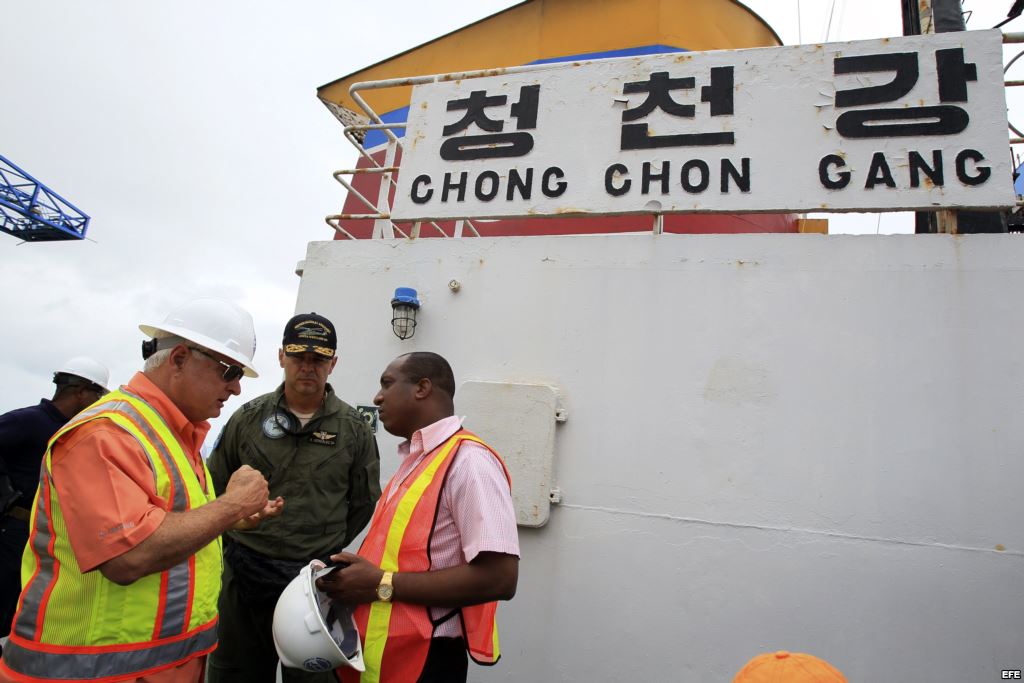 I wasn’t there, but then they told me and later I read that on July 11 the Panamanian authorities stopped a North Korean freighter sailing through the Caribbean to the Panama Canal. Bear with me, but I think that with that name (Chong Chon Gang) would have stopped anyone; knowing that today the infamous and raggedy boat had sailed from Cuba and its final destination, written on its “Road Map” (or the log of the sailing, according to the former inspectors of the whereabouts of the 32) was nowhere democratic and, much less popular, the Democratic People’s Republic of Korea.
I wasn’t there, but then they told me and later I read that on July 11 the Panamanian authorities stopped a North Korean freighter sailing through the Caribbean to the Panama Canal. Bear with me, but I think that with that name (Chong Chon Gang) would have stopped anyone; knowing that today the infamous and raggedy boat had sailed from Cuba and its final destination, written on its “Road Map” (or the log of the sailing, according to the former inspectors of the whereabouts of the 32) was nowhere democratic and, much less popular, the Democratic People’s Republic of Korea.
The cargo found set off a huge diplomatic dust-up; and this, in turn, a genuine media orgy that flared up when a little more than 24 hours after the Panamanian announcement, the Cuban Foreign Ministry (MINREX) issued an official statement that tried to minimize the central fact using the hackneyed ploy of playing with the details, while North Korea maintained a kind of “silence” on the matter in which 35 of its citizens were detained at sea.
That Havana would hide its arsenal under tons of sugar, and they were sending them to Pyongyang to repair them there, is logically credible but leaves questions.
It’s normal that over some determined period of time, planes, radar systems, anti-aircraft missiles or some other military or civic equipment, requires repair or heavy-duty maintenance. But, in this particular case, and seeing as this equipment was made in Russia, the question would be, why didn’t they send them to Russia if — according to what I understand — Cuba and Moscow maintain and even nourish a fluid communication at the highest levels.
To save money. That could be an answer that too many seems likely and offers a certain credibility. It is known that Kim Jong-Un accepts barter and that, as a common practice, North Korea repairs and modernizes this type of equipment in exchange for Cuba’s sugar or Myanmar’s rice. However, we can’t forget that at the moment when the unsayable Chong Chon Gang was stopped, the military park in questions (the two missile complexes Volga and Pechora, the new missiles in parts and pieces, the two MIG-21 Bis planes and the 15 engines for this type of airplane — made in the middle of the last century — traveled hidden under 10,000 tons of sugar.
Some people, looking to be argumentative, allege that all these military goods were very well camouflaged because of the two United Nations Security Council resolutions that prohibit its member states from transferring to, supplying, and servicing arms for Pyongyang. I’m sorry to rain on their parade and that absurd justification; but if the Island’s government (respectful like so much cackling about its commitments to peace, disarmament and respect for international law) would like to send its deadly toys to North Korean to be repaired there and then to be returned, all they have do to is to apply for the required permission from the commission that oversees that sanction in the Security Council.
All of which leads me to think that among those sacks of sugar, more than weapons, hidden truths were traveling, that were neither going to North Korea nor even thinking about coming back.
26 July 2013
Why Isn’t the Dissident Movement Relevant to the Average Cuban
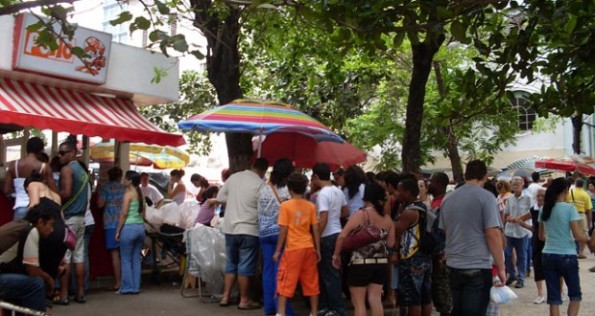 My neighbors think exactly the same way as many in the opposition. They are as unhappy with the government of the Castro brothers as any dissident. Many a night I have to listen to loud complaints and criticisms leveled against the regime of General Raúl Castro.
My neighbors think exactly the same way as many in the opposition. They are as unhappy with the government of the Castro brothers as any dissident. Many a night I have to listen to loud complaints and criticisms leveled against the regime of General Raúl Castro.
The causes for this disgust are numerous. They vary from the cost of putting food on the table, low wages and the absurdity of having two currencies to sky-high prices for basic commodities and corruption at every level.
At least people have not taken to the street to protest as in Brazil. In Cuba the escape valve is the living room of your house, where people never tire of grumbling and bemoaning their bad luck.
When workers are asked why they do not form independent trade unions or housewives are asked why they do not bang their pots and pans in the street to complain about overpricing, they look at you as if to say, “Do you think I am stupid?” Invariably the response is almost always, “I’m not going to play the hero,” or “If others do it, I will too.”
“Why don’t you join an opposition group,” I ask. No one admits to being afraid; they prefer to say they do not want to put their families at risk. Others claim they do not trust dissidents. Or that no one from the opposition has approached them with a proposal.
This is an interesting point. It is odd that in no neighborhood of Havana — I should mention I happen to live in the capital — can anyone find a dissident, especially since most of the opposition suffers from the same shortages as the average citizen. Actually, they suffer even more if you consider they are often harassed by the special services.
In my opinion the opposition has not figured out how to take advantage of this obvious discontent to attract followers. They live in their own world — one of discussions, meetings, debates among themselves and now trips overseas. Their initiatives are unknown inside Cuba. The average Cuban is not even aware of what they do.
Meanwhile, the inefficient public transport system continues to be a popular source of discontent. People complain about the poor quality of bread. Trash cans overflow with garbage yet trucks do not come by to pick it up. And every night broken water pipes turn the city’s streets into rivers.
I do not believe that official journalists — steadfast defenders of the regime — are unaware that their neighbors are irritated by the qualitative decline in public education or by the professional incompetence of many doctors.
Eight out of ten people with whom I speak on the street do not support the Castro regime, but the opposition has not figured out a way to capitalize on this anger. It is more concerned with promoting its agenda overseas.
By harassing them, infiltrating their ranks with secret agents and sowing divisions, State Security has made dissidents’ work difficult. The official media has never given them a platform to make their viewpoints known. Nor will it. This can only be done through hard work.
The business of an opposition party is to recruit members. I believe it would not be too difficult for the opposition to find people willing to listen in parks and on the street, or while waiting in line and at bus stops. Dissidents would have to do community outreach, focusing more on the problems of a neighborhood and its residents, their natural allies.
Certainly, enlisting a skeptical people is not an easy task. Politics are not fashionable and many of those feeling outraged also view the opposition as “a band of moochers and opportunists.”
This is the message the government has been putting out for years. Undoing this image will be difficult and the behavior of certain dissidents hardly helps matters. Some join the opposition in order to gain political refugee status and move to the United States.
This vagabond dissident movement has no shortage of people who battle the regime with their ideas but remain bookish narcissists. The problem is that political initiatives have validity only if they are group endeavors, not individual ones.
Among certain dissidents there is also a disturbing tendency to believe that the initiatives of others do not count. They use the same weapons as the government; you are either with them or against them.
False accusations and condemnations are used frequently. If someone does not share another’s opinions, the first impulse is often to say that “this guy is an agent of state security” without providing any evidence.
It is the fastest way to brand an adversary but no one comes out of it looking good. When dissidents fight among themselves, only the regime benefits.
The opposition simulates a catwalk of vanities. I am sorry to say this but every time I attend an event or have a conversation with some of them, it leaves a bad taste in my mouth.
If up until now they have not been relevant to the average Cuban, the fault is in part theirs. The future of Cuba should take precedence over egos and garnering the spotlight. Tactics should be changed. The Creole autocracy meanwhile does its thing, mapping out its strategies and trying to colonize the opposition.
My neighbors want a change of government as well as systemic change. They have grown up in an ideological insane asylum which is not capable of providing a glass of milk for the breakfast table or producing a decent pair of shoes. They do not trust the Castro brothers.
Or the dissidents. The Cuban opposition has done very little to win them over.
Iván García
Photo: One of the many lines Cubans form every day. From the blog by Tania Quintero.
23 July 2013
In Memory of Oswaldo Paya / Rosa Maria Rodriguez
Oswaldo José Payá Sardiñas (1952-2012). Image taken from a Christian Liberation Movement magazine.
Text of quote: “Let them call free and democratic elections on a the basis of a new electoral law and an environment that allows all Cubans to have the right to be nominated and elected democratically, to exercise freedom of expression and of the press, and to freely organize political parties and social organizations with total plurality. Yes or no?”
Oswaldo Payá came into this world and left it in leap years. He was a righteous man, devout Catholic and exemplary parent. As he was also with his country and with his time and his proposal to compel change to the iron structures of the Cuban dictatorship; but in exchange he received bullying, harassment and constant threats — open and veiled — against his person and his family.
He worked for the nation and the full exercise of the rights of Cubans. He thought up and developed multiple proposals for the democratization of Cuba, which the government authorities systematically ignored for more than two decades. Is is that men who carry freedom in their souls and think and feel in a clearly democratic way, something that naturally repels tyrants.
In this year since his death in circumstances disputed by his family, small changes have occurred in the way of achieving the oligarchic objectives and perpetuating the government. Many have stepped aside to advance and to gain ever more space for externalizing the designs of the dictatorship, and among them are the annihilation of opposition political organizations inside Cuba. The ubiquitous presence — the unseen, which is equally or maybe more effective — of Cuban intelligence, the same here as in the world, conspires to prevent democrats from achieving our goals.
Today, when many opponents and dissidents seem confused in finding the way and means to achieve the desired democratization of Cuba, the dictatorship is consolidating and positioning its family, friends, and trusted staff.
They find it easier due to the absence of a path and a common and unifying leadership animated not by the violence of the raised machete, but by the sincerity, uprightness and intelligence of a proposal for a liberating transition and real changes.
A year after the death of Payá, they continue to lack the support of the world community to strengthen our society in the search for authentic paths not vitiated by police influence. That leaves us to imagine viable proposals that are agreed and achieve international support to promote them.
23 July 2013
Prison Diary XXXIX: State Security — Factory of Detractors and Betrayers / Angel Santiesteban
Intent to discredit UNPACU (Patriotic Union of Cuba)
The machinery of the Castro regime’s State Security creates detractors, traitors, and division among the opposition; this has historically been its most persistent work.
We learned that to confront the designs of the Castro brothers, is to enter the hall where they teach the “instruments” of psychological and physical torture, if persuasion, persecutions, interviews, threats and blackmail haven’t been enough.
For this mission, to enroll you as an “agent,” covert or concealed, appears on the path to achieving their purpose of making you desist. Some agree when they themselves are persecuted, and then give in, and they are then used against those who, like them, once decided to dissent.
These beings become human missiles capable, like androids, of complying to the letter with orders; to this must be added that most of those who lend themselves to the needs of the regime are, in addition to being cowards, usually mediocre, lacking in artistic talent, such that they will not be remembered for their work; nor for their treachery and meanness. They are negative beings, dark, murky, pieces in the gears of the dictatorship who take advantage of the immediate benefits provided to them by the totalitarian government as payment for their intrigues and support of their smear campaigns.
I know that this happened with the National Patriotic Union of Cuba (UNPACU), and particularly with the most visible of its organizers, the patriot José Daniel Ferrer. They are nothing more than smokescreens used to discredit one the most outstanding figures of the Cuban revolutionaries, pursuing, risking his life and that of his family for the freedom of Cuba, with a change in the current political process that guarantees the rights for all Cubans, backed by the UN Covenants.
The death throes of the regime are visible, the kicking of the hanged man, without logic or direction, its feet lashing out in all directions. If we have the patience to wait and get this far, how can we not stand up to their latest injustices and excesses.
Justice is what we are trying to achieve with change. Then we will analyze their abuses, impositions to placate their anger, and the course of national treasure; we will pursue their family bank accounts globally, and return to Cuban its patrimony.
That is, indeed, the immediate reality which they fear and they will not hesitate to raise their hands to order the physical disappearance of those who hinder them, as has happened so far with several of our leaders. In any event, we know that whether we are here or not, there will be others who will impose order, laws and justice.
Our conscience rests on it.
Ángel Santiesteban-Prats, Prison 1580,
26 July 2013
Landy* and Lunacy / Orlando Luis Pardo Lazo
In Cuba it was the same. The United States need not be the exception.
Crazy. Beautiful. Docile. The sufficient causes of great massacres lie at the margins of great truths.
Cubanness, for example.
There is no genocide more perfect than Cubanness.
It began with torture on a ladder, and a poem bad and then some forged two hundred years later. A mirror of tackiness.
Remember the slap that Antonio Maceo gave José Martí? It wasn’t a punch, it’s written in the confiscated pages of the victim’s Campaign Diary. It was a slap, which is how women in Cuba are hit when they misbehave or, as in this case, when they don’t shut up and they think they own all the explanations.
Martí as a faggot among the mass of mulatto machos from the mountains.
Maceo, with thousands of deaths under his belt, who, according to another war diary, killed an informer, a black woman who sold sweets in the rebel camp. She didn’t choke from the rope, due to her rickets, so the bronze tyrant** lowered her hanging body so that he could break her neck and finish her off.
I love my country’s history.
My beautiful and lovely homeland.
Trucks drove up the Sierra Maestra with arms and drove down with coffee. Batista’s little criminal soldiers, who couldn’t even kill flies, had to be paid 500 pesos (the ones that could kill weren’t there, but rather awaiting some declaration from the Sierra Maestra itself to go behead the leaders of the urban underground).
Things started early, don’t be fooled.
The armored train cost a pretty penny, but it paid off.
It seems that Martí too hired this or that anarchist for some selective assassinations there, in the very same metropolis that, in the end, won the war against Spain (the bloodiest that a New Yorker like him could imagine).
None of this is mine, I say it as a warning to those “democreformers” who follow my writing with guilt, trying to excommunicate me from their big bland cake of a homeland (anyway, I don’t want to chew on those scraps).
All is apocryphal and I disown responsibility among so many spokespersons. They’re only nutcases. Beautiful little nutcases that approach me and tell me their stories.
In Cuba as in the United States.
I still don’t understand exactly why.
Maybe they see in it my eyes.
They see that my eyes are the only eyes in the world that won’t forget their historical horror.
They’re right.
Never.
I love them so much that I couldn’t survive if one sensible day they ceased to approach me.
You, come to me now.
Translator’s notes:
*Landy is a nickname used by Orlando’s closest friends and family.
**This is a pun on El Titán de Bronce (The Bronze Titan) the historical sobriquet by which Maceo is known among Cubans.
Translated by: Alexis Rhyner and Yoyi el Monaguillo
12 June 2013
Santiago on July 26: The Santiaguans Have Nothing to Celebrate / Aleaga Pesant
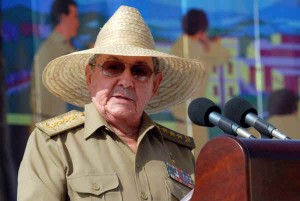 HAVANA, Cuba, July 26, 2013, www.cubanet.org.- Like every five years, the most important celebration of the revolutionary calendar, the assault on the Guillermón Moncada Barracks in Santiago de Cuba on 26 July 1953, returned to the most Caribbean of our cities. The protocols and extreme security measures that accompany Raul Castro Ruz looked ridiculous in the middle of the overall apathy of the population affected by the severe economic crisis affecting the country and especially the east.
HAVANA, Cuba, July 26, 2013, www.cubanet.org.- Like every five years, the most important celebration of the revolutionary calendar, the assault on the Guillermón Moncada Barracks in Santiago de Cuba on 26 July 1953, returned to the most Caribbean of our cities. The protocols and extreme security measures that accompany Raul Castro Ruz looked ridiculous in the middle of the overall apathy of the population affected by the severe economic crisis affecting the country and especially the east.
Low wages, serious unemployment, underemployment, school dropouts and migration to other provinces, together with the impact of a hurricane last year that affected many houses, are the most important reasons for Santiaguans are not interested in the celebrations. With all this the authorities were determined to inaugurate monuments, including one dedicated to Juan Almeida, or allocating billions of dollars to the restoration of the Plaza Antonio Maceo, to restoring road signs to give an image of normalcy before the visits of foreign politicians.
Ten thousand Santiaguans, according to official figures, were designated to be in the great square of the old Moncada barracks, now a school, on July 26, escorted by a large photograph of more than ten yards high of Fidel Castro Ruz, leader of the failed assault.
And if a particular feature is the spectacle this time, it is the large presence of Latin American and Bolivarists presidents.
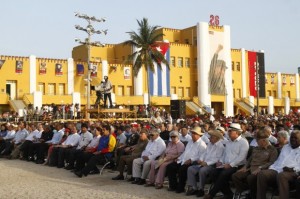 Evo Morales (Bolivia), Daniel Ortega (Nicaragua), José Mujica (Uruguay), Nicolas Maduro (Venezuela), as well as the Chancellor of Ecuador and the prime ministers of Dominica, Antigua and Barbuda, St. Vincent and the Grenadines, and St. Lucia, accompanied the senior military dictatorship.
Evo Morales (Bolivia), Daniel Ortega (Nicaragua), José Mujica (Uruguay), Nicolas Maduro (Venezuela), as well as the Chancellor of Ecuador and the prime ministers of Dominica, Antigua and Barbuda, St. Vincent and the Grenadines, and St. Lucia, accompanied the senior military dictatorship.
The foreign political speeches marked by anti-Americanism, and the exaltation of “Cuban solidarity,” became a marathon “relay race” that lasted for more than two hours.
It is speculated that such rhetoric is intended to build consensus abroad, following the incident of the Cuban ship carrying weapons to North Korea, making it the unwelcome guest of the political spectacle. And toward the interior, given the difficulties faced in implementing the reforms.
I turned sixty, and what do I have?
The General President Raul Castro Ruz, keynote speaker, in a short speech he read, promised that the State will ensure the development of the city of Santiago de Cuba, destroyed after Hurricane Sandy (October, 2012), which lost 50% of housing stock, as well as suffered extensive damage to communications infrastructure.
He then offered a triumphalist reconstruct of the events of the last sixty years. And he referred to the process of delivering, gradually, the responsibilities of government to another generation of communist leaders. Of new challenges, not even a word.
However, not everyone agrees with the triumphalist epic vision repeated by the government through the media about the assault on the Guillermon Moncada Barracks.
Jorge Hernandez is the shopkeeper in my neighborhood in El Vedado. A newly emigrated black Santiaguan who, when asked about the significance of the 26 July 1953, and the assault on the Moncada Barracks in Santiago de Cuba, he passed his hand over his head, looked me straight in the eye and without blinking said:
“I turned sixty and what do I have? … My life is already passed and I have nothing. I was born the year of Moncada in San Pedrito. As a child and young man, and until much later, I thought as I was told, that the Moncada assault opened the way for me. But at sixty, I repeat the question: What do I have?”
Pepe, a neighbor, a veteran of the 13 or March Directorate, almost eighty years old, imprisoned several times in the Castillo del Príncipe, for his revolutionary and anti-Batista activities, is less radical in his perception:
“The Revolution was something very beautiful, but unfortunately was betrayed, when the Communists made a clean sweep and lost their Catholic essence, that was the responsibility of Fidel Castro, who seized the that we had gotten with so much effort. For a long time, the celebration of the Assault on the Moncada was for me a special day, glorious. Today is just a sad day, to see what is left of our dream and at my age is hard to see how this will end.”
However, Alfredo, an economist currently working in Luanda, Angola, for the military corporation ANTEX, thinks that Moncada was a defining moment in the history of Cuba, which proved the genius of Fidel and the Cuban revolutionary spirit:
“We have a new Moncada ahead, and it is to support Raul’s requests on the need for social discipline, to carry out the guidelines of the National Party Conference (the communists), in order to make socialism sustainable and especially to internationalize the campaign to free our Five (now four) Heroes imprisoned by the empire.
In Santiago de Cuba, on the old road from Cobre, Guillermo Espinosa sees the matter from another point of view. Besieged by the political police, he hasn’t been able to leave his house since July 23, because they are threatening him to arrest him the minute he sets foot outside. According to him, the majority of Santiago’s democrats have been arrested or detained in their homes, as they did on the visit of Pope Benedict XVI, in March of last year.
To Guillermo, 45, the assault on the Moncada Barracks was the continuation of a cycle of violence that began in the Republic and has not yet ended.Because the so-called revolution established a military dictatorship that deprived the people of all freedoms.
“Sixty years later,” he says, “the country is poorer in the economy and in spirit. The calls for economic measures are an aspirin for a body already sick unto death.”
From Cubanet
26 July 2013
27 July 7 PM: Eskuadron Patriota (Patriot Squadron) and Reading by @OLPL / Orlando Luis Pardo Lazo
Tomorrow (TODAY!) EskuadronPatriota y @OLPL: 3308 HudsonAvenue UnionCity NJ
With regards to Raul Castro’s 26th of July speech today / Yoani Sanchez
On the 60th Anniversary of the 26th of July Movement / Rolando Pulido
Debate of Positions / Fernando Damaso
It’s no secret that in our society, and even within the government itself, different positions are debated about how to confront and resolve our economic, political and social crisis. The honeymoon era, based on a supposed monolithic unity of all the components of the nation, which ultimately was never for real, has been left behind and is just a bad memory, displaced by the winds of change of different intensity and direction.
In recent days, some characters of known inflexible affiliation, fearful of losing their precarious positions and privileges, even with the small and slow changes introduced mainly in the economy, have targeted the so-called new rich, principally the successful self-employed, preaching to unleash a witch hunt, something we have always had plenty of: for example Bird-on-a-Wire*, The Battle Against the Pots**, etc.
The demons being exorcised now are quinceañeras (huge parties for girls’ 15th birthdays), dressing in the latest fashions, listening to contemporary music, eating ham shank, drinking Coca-Cola and preferring Disney cartoons. Also included are some owners of vehicles dedicated to passengers and cargo which, according to these characters, has nothing to do with the culture. It seems incredible, but it is real. The absurd proposals to change the situation do not bear repeating…
Nevertheless, times have changed and people have as well, though perhaps not as much as we would have liked, but if, before, prosperity was punished by word and deed, now, at least in words it is not the case and, indeed, it is emerging strongly, hence the spear launched against it.
For myself, I don’t care about the new rich, provided they have obtained and obtain their wealth with their talent, initiative, hard work and determination. Both those who have become rich from the spoils of ancient wealth for their riches, arguing the necessity of converting it into the property of the whole people, which they did, transforming it into state property where some, acting within the state, obtained and derived their wealth, positions and privileges, adding to them at the expense of the misery of the citizens.
Nor have I ever believed in a false equality, which really only equaled poverty for the majority of the population, while a privileged elite has remained and continues “on top the ball,” as a popular song says, far above ordinary Cubans.
Translator’s notes:
*Bird-on-a-Wire was a police operation in February 1982 against speculators who were cornering rural markets and charging exorbitant prices for the goods.
**The Battle Against the Pots: The “pots” (wealthy people) were accused of diverting state resources to meet their own needs (for example, using a state-owned crane to lift a water tank onto an individual’s house).
23 July 2013
The Catechism According to Mujica / Yoani Sanchez
The language of diplomacy, although distant and calculated, gives us a glimpse of changing times. I remember that for years I could predict every word foreign presidents would utter once they arrived in Cuba. Never lacking, in the script of their speeches, was the phrase “the unbreakable friendship between our peoples…”. Nor was a commitment to total harmony between the political projects of the visiting leader and his counterpart on the Island. There was one path and fellow travelers could not deviate an inch from it, and so they made it clear in their statements. Those were times, seemingly, of complete agreement, no nuances, no differences.
In recent years, however, the expressions of the official guests who arrive have been transformed. We hear them say, “although there are points that divide us, it’s best to look for those that unite us.” The new expressions also include the declaration that “we represent a diversity,” and that “we come together in working together, maintaining our plurality.” Clearly, bilateral relations in the 21st century are no longer conceived with a monochromatic and unanimous discourse. They exhibit the variety that has become fashionable, although in practice there is a strategy of exclusion and denial of diversity.
José Mujica, president of Uruguay, has added a new twist to the discourse of presidents received at the Palace of the Revolution. He stressed that “before, we had to recite the same catechism to come together, and now despite our differences, we manage to be united.” Incredulous spectators on national television, we immediately asked ourselves if the doctrine to which the Uruguayan dignitary referred to was Marxism or Communism. According to today’s evidence, two presidents can shake hands, cooperate, pose together for a smiling photo, even though they have dissimilar or opposing ideologies. A lesson in maturity, no doubt. The problem — the serious problem — is that these words are said and published in a nation where we, the citizens, can have no other “catechism” than that of the party in power. A country that systematically divides its population between the “revolutionaries” and the “unpatriotic,” based purely on ideological considerations. An Island whose leaders stoke political hatreds among people without taking responsibility for these seeds of intolerance they consciously sow, water and fertilize.
This is Cuban diplomacy. Accept hearing from a foreign visitor what you would never allow someone born on this island to say.
When You Are King, When You Are Executioner / Regina Coyula
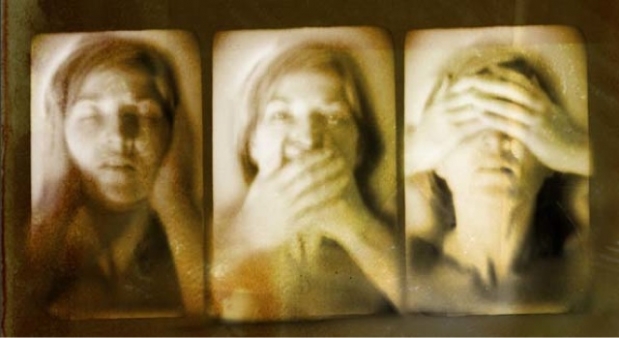 (SGNEWWAVE.COM)
(SGNEWWAVE.COM)
I only knew Luis Pavón by reputation. Talking with my husband, Rafael Alcides, and with friends, he was almost never mentioned directly. We talked about “the pavonato,” that dark period that was aired for the first time in the glimpse of freedom we came to call “the little war of emails.” Alcides, for personal reasons, did not visit the Cuban Writers and Artists Union (UNEAC) in that grey period imprecisely denominated a “five-year period.”
His only approach to publishing in that era was a novel that he offered for review… and it was lost. In some box in a work corner in the house is the typed correspondence that went back and forth demanding his original, and from the Union publisher answers with no answer. Alcides can’t get out of his mind that his novel ended up in the drawer of some compañero from UNEAC.
But this isn’t the story. Alcides came to know Pavón in 1987, when he was ousted, an obscure official who ruminated on his “glory,” and offered to take him home from the Wilfredo Lam Center in old Havana in his Lada. As the trip gave them some time to talk, Pavón complained that the writers who had suffered the rigors of the Five Grey Years, most of them friends of my husband, treated him with contempt, insulting him; humiliation on top of humiliation, as the UNEAC International Relations officer, he had to carry the suitcase of people whom he had once received as president of the National Council of Culture (CNC).
Alcides, who actually was a friend of many victims of the policy of the parameterization* and exclusion, replied that it was logical and Pavón should understand. To which Pavón replied that he had only followed orders. “There are orders that must not be followed if you want to be saved by historical memory,” said my husband. “But I am a disciplined militant,” was the reply. “But the true militants are saying no,” said Alcides.
Five years later, they met again at the house of a mutual friend. Pavón was already retired and recommended with special enthusiasm the Bulgarian novel, “When you are king, when you are executioner.” Alcides didn’t know of it, so the third — and last — time they met, Pavón gave him a copy. What particularly interested Alcides it what he would have liked to say Pavón: in every king is there always an executioner? Does every king have his executioner?
The television program Impronta rescued Luis Pavón Tamayo from oblivion for the worse, and silence now before his physical death confirms his civil death years ago. The victims of the policy he represented are comfortable between acknowledgement, travel and awards; they prefer Pavón make the target of all the darts. They know that Pavón did not improvise, and if there was any official apology, would be unofficial and individual. The disciplined militant embodies the king as the object of all the hatred.
Leopoldo Avila**, the alias who martyred intellectuals from the pages of Verde Olivo***, was not a single person. This can be glimpsed in the disparity in the style of his articles, but the healthy selective memory, enjoyed by restored, prefers to see only Luis Pavón Tamayo as executioner.
Alcides remembers him as a man who spoke softly, pleasant and polite without being pedantic. A expendable poet, although with sensitivity. A memory fleeting and friendly. Ultimately, he came to know him when he was no longer king nor executioner.
Regina Coyula | La Habana | 1 Jun 2013
Translator’s notes:
*Parametrados / parametracion: From the word “parameters.” Parametracion (parameterization) is a process of establishing parameters and declaring anyone who falls outside them (the parametrados) to be what is commonly translated as “misfits” or “marginalized.” This is a process much harsher than implied by these terms in English. The process is akin to the McCarthy witch hunts and black lists and is used, for example, to purge the ranks of teachers, or even to imprison people.
**”Leopoldo Avila” was the pseudonym used by Pavón (and others) in the pages of the magazine Verde Olivo.
*** Verde Olivo (Olive Green): The illustrated weekly magazine of the Cuban Armed Forces, founded in 1959; Pavón served as the magazine’s editor for a time.
18 July 2013
